Meater+ vs. Weber Connect Smart Grilling Hub
Which meat thermometer wins for BBQs?
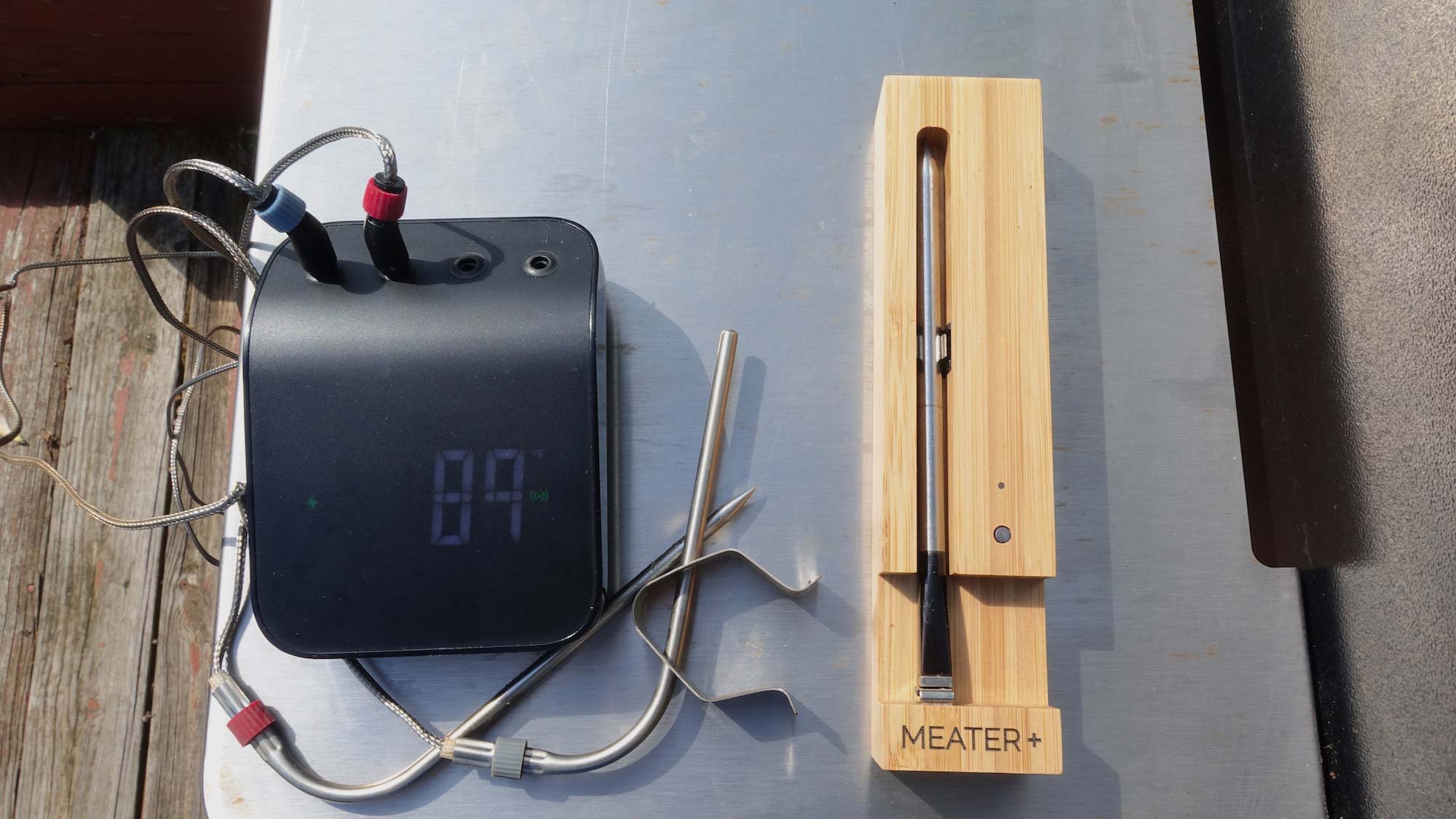
Now that the weather is getting nicer, grilling season is upon us. And if you’re doing more cooking at home, having a good thermometer is essential for knowing when your food is ready to come off the grill, as there’s nothing worse than an overcooked steak or chicken. If you’re barbecuing, a thermometer lets you know not just the temperature of your food, but of your pit too: You need to make sure it’s staying at a consistent temperature for the duration, which can last upwards of 12 hours.
Smart meat thermometers add a level of convenience, as they let you monitor the temperature of your grill from your smartphone; that means you can sit on your couch watching TV, or head to the kitchen to prep the rest of your meal, and not have to run out to your grill to make sure everything is going well.
- Best solar lights
- Best Memorial Day patio furniture sales
But which smart meat thermometer is best? I tested one of the more popular devices, the Meater+ vs. the Weber Connect Smart Grilling Hub. Meater’s thermometer has been around for a couple of years and enjoys great ratings. The Weber Connect launched just this year, but is made by the brand synonymous with grilling.
Both devices cost around $100 and let you remotely monitor whatever it is you’re cooking through an app on your smartphone. Both thermometers also have guides and instructions on how best to prepare your food. So which should you trust with your brisket and ribs? I did the dirty work for you, and smoked a 4-pound pork shoulder to find out.
Meater+ vs. Weber Connect: Specs at a glance
| Row 0 - Cell 0 | Meater+ | Weber Connect |
| Price | $99 | $125 |
| Food probes included | 1 | 1 |
| Wireless | Bluetooth | Bluetooth, Wi-Fi |
| On-thermometer display | No | Yes |
| Max temperature | 527 degrees F | 572 degrees F |
Meater+ vs. Weber Connect: Price
The Meater+ costs $99, while the Weber Connect is $125. Each comes with a single probe for your food; Meater’s probe also measures ambient temperature, while the Weber comes with a second probe to keep tabs on the internal temperature of your grill.
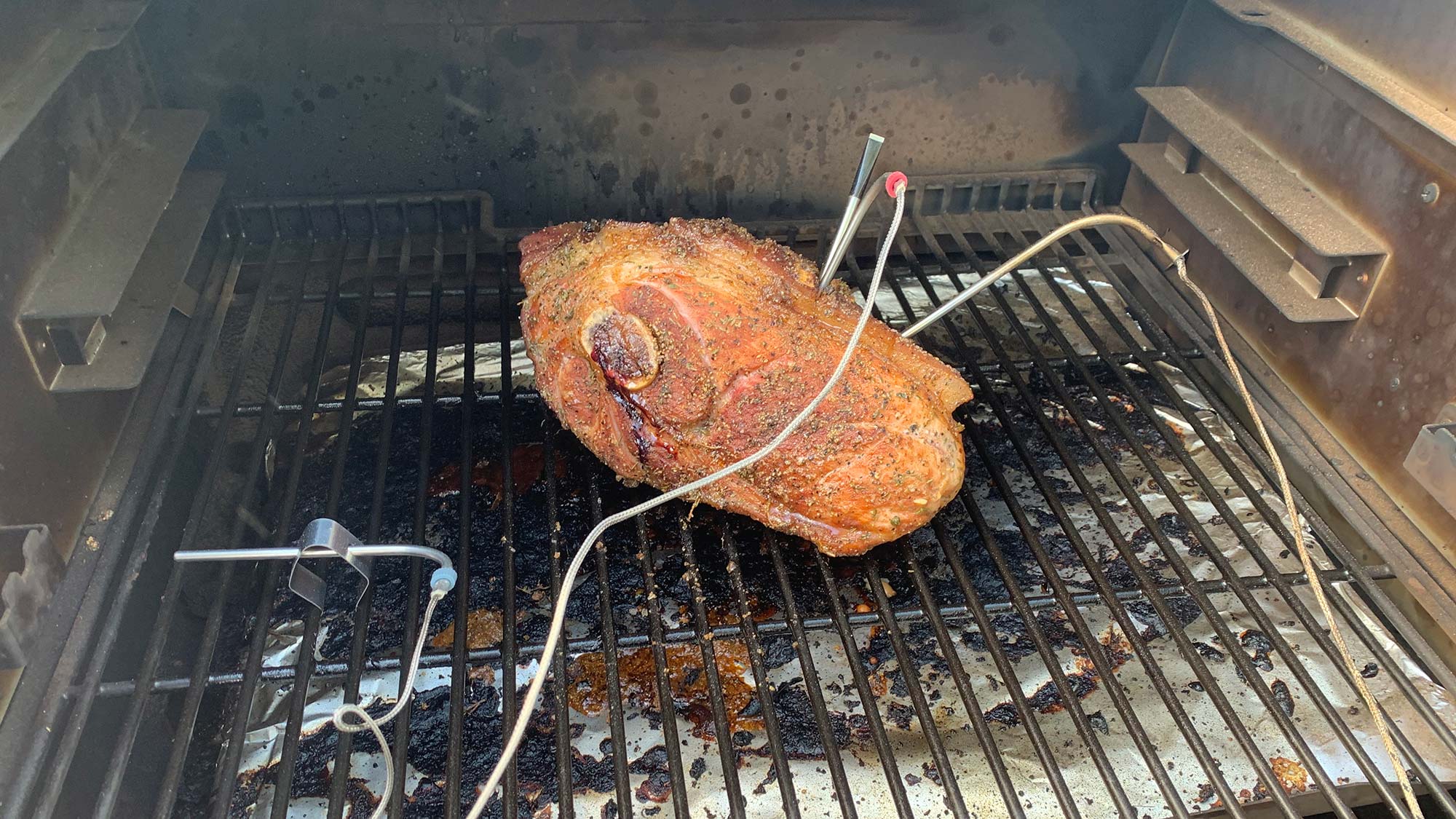
However, if you’re cooking a few things at once, and want to monitor them individually, then the Weber Connect quickly becomes the better value. The Weber Connect has four ports, and extra probes cost $14 each.
The Meater+ only comes with one probe, and you can’t purchase extra probes separately. You can buy a Meater+ bundle, which comes with two probes, for $189, or the Meater bundle for $129. (The latter bundle does not have a Bluetooth repeater in the block, so your range will be limited to around 30 feet.) Meater also sells the Meater Block ($269), which stores four probes, and can connect to Wi-Fi, and the Meater Pro XL ($349).
Winner: Weber Connect
Meater+ vs. Weber Connect: Design
The Meater+ consists of a bamboo-wrapped base station, whose only purpose is to recharge the probe when not in use and serve as a Bluetooth repeater, which helps extend the working range of the probe to about 165 feet. It’s simple, and it works.
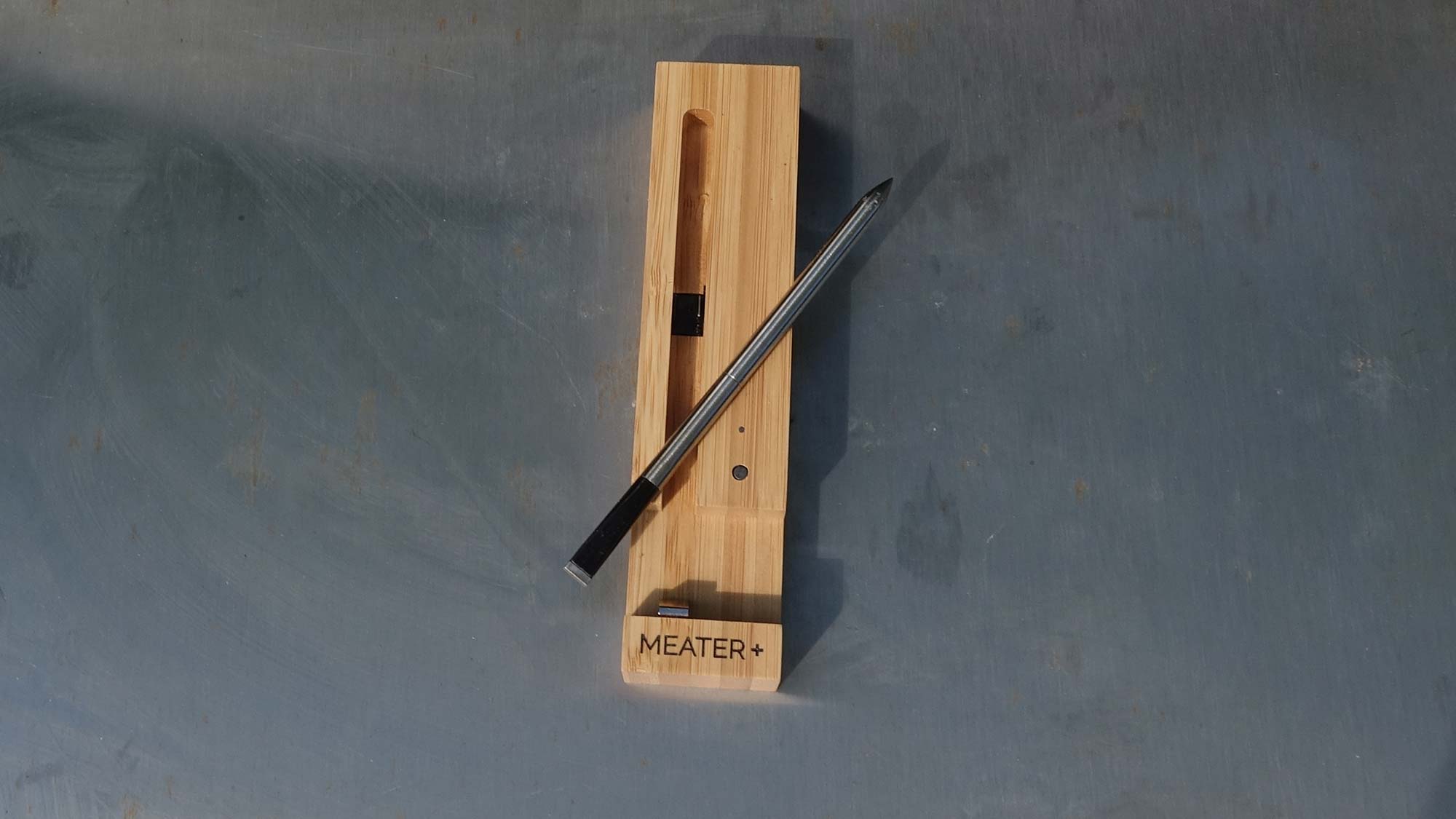
Meater’s probe has sensors that measure the temperature of both what you’re cooking and the ambient temperature inside your grill. However, Meater’s probe is about twice the thickness of Weber’s probe, so it isn’t going to work if you have a thin cut of meat.
The Weber Connect hub is a small black box with an angled top; Here, you’ll find the four probe ports as well as a display, which shows the temperature from each probe. It’s handy — the Meater+ lacks a screen, so you have to use the app — but I found the Weber Connect’s screen a little hard to read in sunlight. To see the temperature from each probe, you have to press on the screen pretty forcefully. And, if you set up a cook program for a probe, the Weber Connect hub will only show you the estimated time remaining, rather than the temperature, which is a frustrating limitation.
The bottom of the Weber Connect is also magnetized, so it’ll stick to metal surfaces. However, the Weber’s magnet isn’t as powerful as the one on my older iGrill mini, which really stayed put.
Winner: Meater+
Meater+ vs. Weber Connect: Wireless
You can connect to the Weber Connect from your smartphone via Bluetooth or Wi-Fi. The Meater+ only has Bluetooth, though you can use a smartphone or tablet to serve as a bridge to your Wi-Fi network.
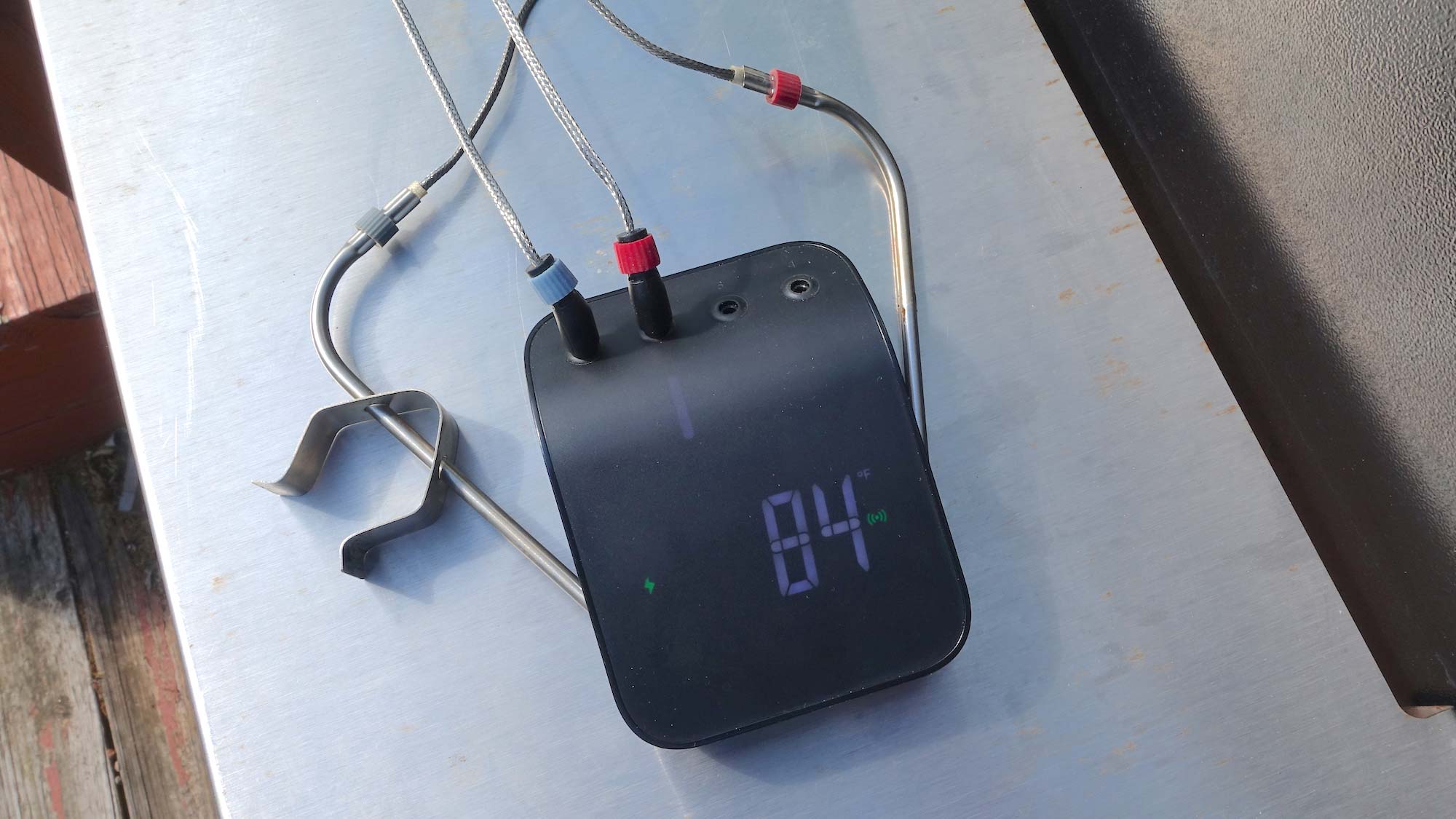
Despite the range-extending Meater+ base station, I preferred the Wi-Fi of the Weber Connect, as I could roam all over my house, and even down the street, and still keep tabs on my cook.
Winner: Weber Connect
Meater+ vs. Weber Connect: App
The home screen of Meater’s app (Android, iOS) shows in bright, bold colors the current temperature of what you’re cooking, the ambient temperature, and the target temperature, the latter of which you can easily adjust. You can also view a chart that shows the temperature changes over time, which I found to be pretty accurate. The app also shows the history of everything you cooked.
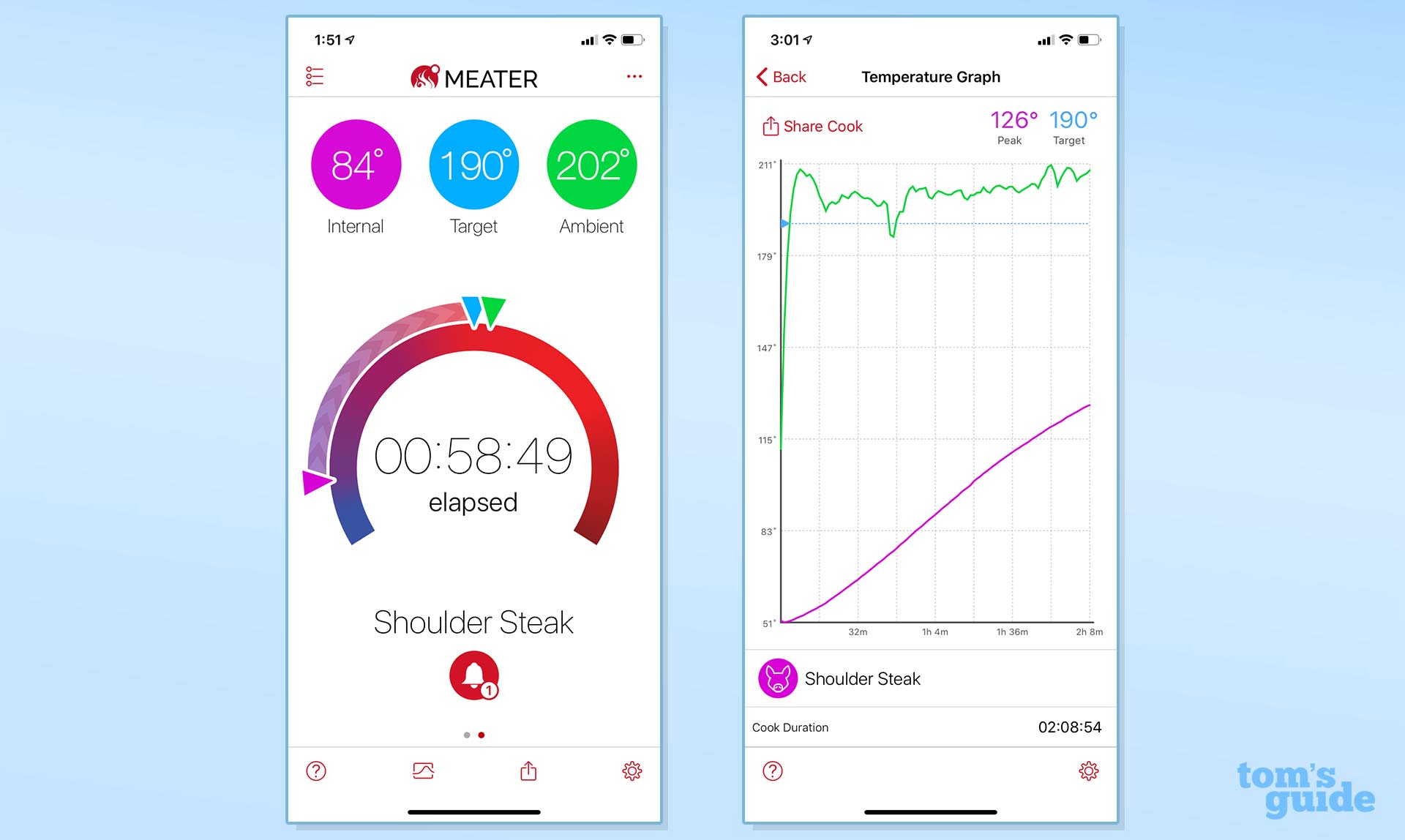
Within the Meater app, you can select what it is you’re cooking (beef, chicken, pork), as well as specific cuts, and select the target temperature. The app also translates temperature ranges into doneness, such as medium rare, rare, and well done, and lists USDA recommended temperatures for each type of meat.
Based on the ambient temperature and the starting temperature of your meat, the Meater app estimates how long it will take for it to finish, and calculates things such as resting times.
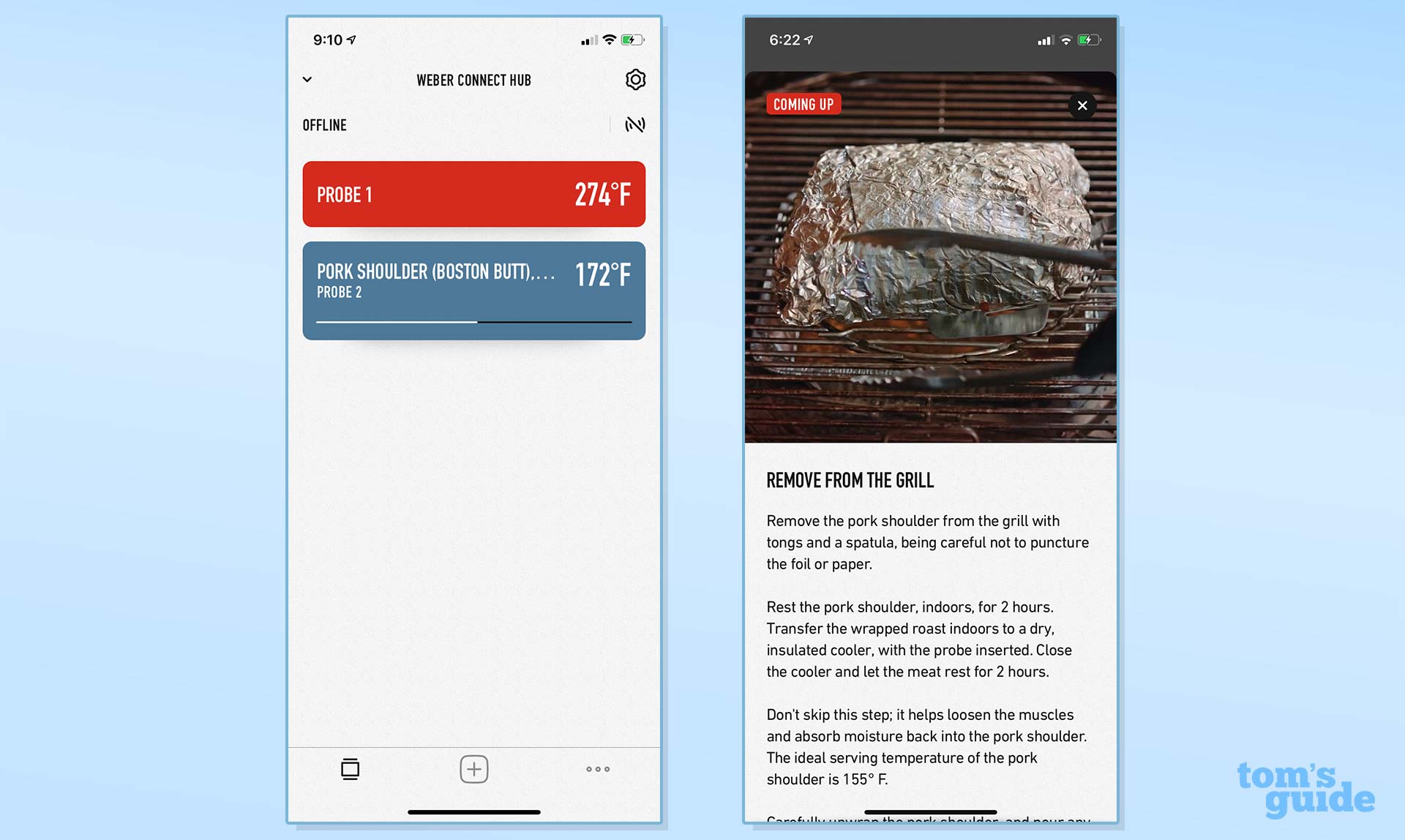
The Weber Connect app (Android, iOS) is good for novice cooks, as it also has guided cooking programs not just for various cuts of meat, but by weight, too. It also lays out the individual steps, including prep work, such as trimming and seasoning, and includes videos for each step. Like Meater, the recipes are somewhat limited, and best for those still finding their way around a grill.
I liked that Weber’s app even has guides for barbecue, something that the Meater app doesn’t take into account. For example, when I was smoking a pork shoulder, I was aiming for an internal temperature of around 200 degrees. Meater’s temperature guide indicated that would mean a well-overcooked piece of meat.
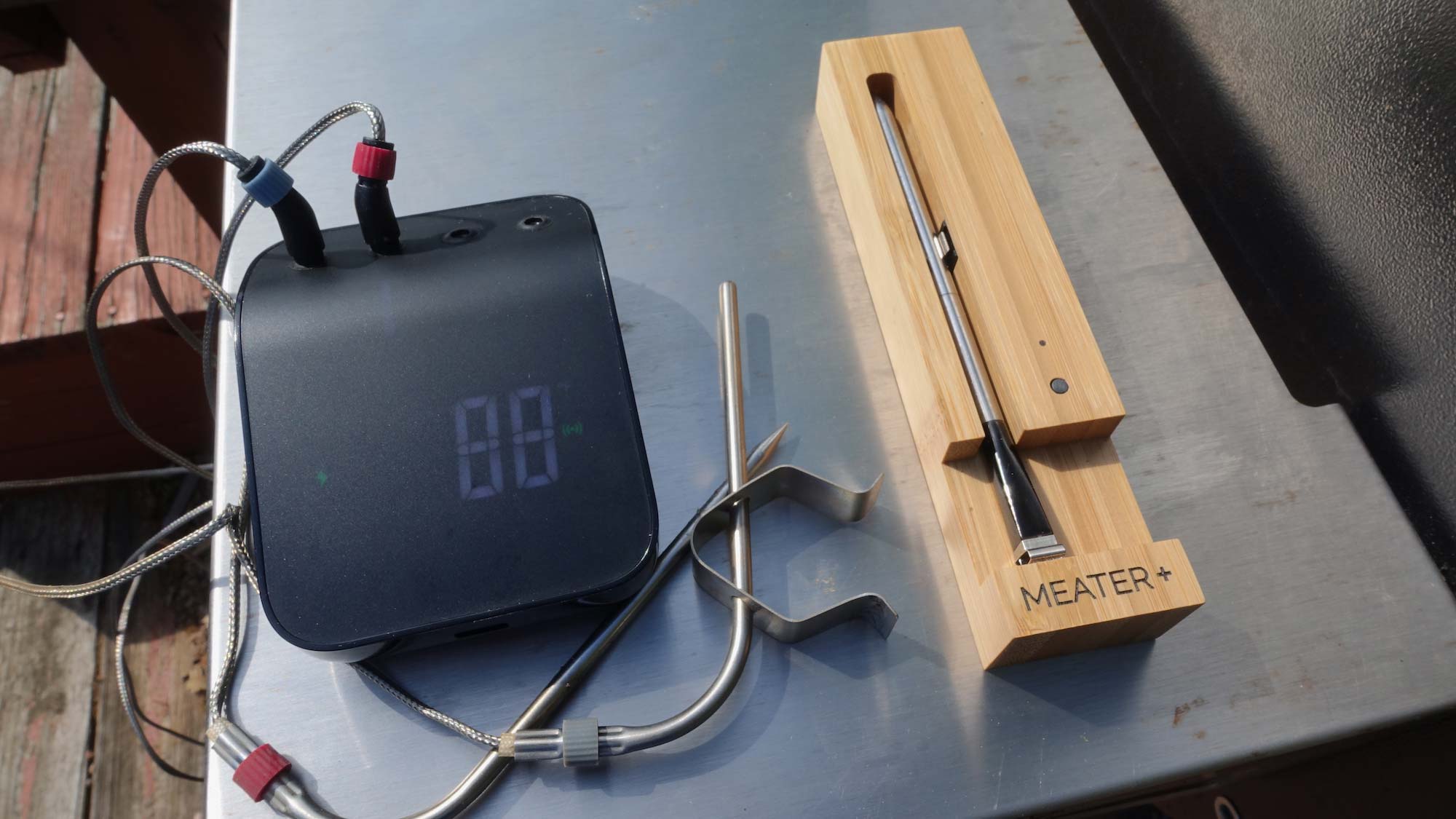
However, Weber’s app lacks a temperature graph, so you can’t see if your grill has been maintaining a consistent temperature over time, or if the meat you’re smoking has entered the “stall,” and needs to be wrapped.
Winner: Tie
Overall Winner: Weber Connect Smart Grilling Hub
Both the Meater+ and the Weber Connect Smart Grilling Hub have good qualities, as well as areas that could stand some improvement. The Weber Connect is the better overall value, as you can monitor the temperature of several different things for much less than the Meater+. And, while I didn’t think the Weber Connect’s display was all that great, at least it had one. Finally, the Weber Connect works via Wi-Fi, so it has a much better range than the Meater+.
However, there’s something to be said for the simplicity of the Meater+, which kept me coming back to it. I liked that all I had to do was insert one probe, which measured both the temperature of the meat and the ambient temperature in the grill. I especially liked that the app showed the readings on a chart over time.
Both devices’ apps also offer a limited amount of guided cooking recipes, but newbies will appreciate the short videos that accompany each step in Weber’s app. Whether you choose the Meater+ or the Weber Connect Smart Grilling Hub, you should get a much better look at what’s going on when you’re cooking.
Sign up to get the BEST of Tom's Guide direct to your inbox.
Get instant access to breaking news, the hottest reviews, great deals and helpful tips.

Michael A. Prospero is the U.S. Editor-in-Chief for Tom’s Guide. He oversees all evergreen content and oversees the Homes, Smart Home, and Fitness/Wearables categories for the site. In his spare time, he also tests out the latest drones, electric scooters, and smart home gadgets, such as video doorbells. Before his tenure at Tom's Guide, he was the Reviews Editor for Laptop Magazine, a reporter at Fast Company, the Times of Trenton, and, many eons back, an intern at George magazine. He received his undergraduate degree from Boston College, where he worked on the campus newspaper The Heights, and then attended the Columbia University school of Journalism. When he’s not testing out the latest running watch, electric scooter, or skiing or training for a marathon, he’s probably using the latest sous vide machine, smoker, or pizza oven, to the delight — or chagrin — of his family.
